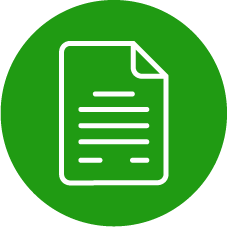Employee absence management
What is absence management?
Absence management is an important way in which a company can support staff with health issues to stay in or return to work, whilst at the same time monitoring and managing those individuals that take unjustifiable time off.
Effective absence management is crucial for businesses looking to lower their costs and boost employee morale. Missed days at work are incredibly costly for the majority of UK businesses. The Chartered Institute of Personnel and Development (CIPD) estimates the annual cost of sickness absence for UK businesses is around £554 per employee, with an average of 5.6 days off per employee. The cost of employee absence is expected to rise to £26bn by the end of this decade.
In addition to the direct costs, employee absence can have a significant impact on the productivity of your workforce, often leading to feelings of demotivation from employees that have to cover absentees’ work. Low motivation is a common cause of reduced productivity, and lower productivity levels will be reflected in your business’s finances, which are in turn reflected in the economy. Ill-health-related absence and presenteeism in the workplace cost the UK economy almost £92bn in 2019.
What should an absence policy cover?
A standard absence policy will make clear exactly what is expected from both the employer and employee if the employee needs to take time off work. It needs to cover off information about:
- How absence is monitored
- Short- and long-term sick leave
- Sick notes
- How to report and keep track of absences
- Certification
- Sick pay
- Review points
- Return to work interviews
- Reasonable adjustments and phased return to work
If an employer has an Employee Assistance Programme (EAP) or provides occupational health, the policy will also need to include information on those and how the employee will be supported upon their return to work.
There is a lot that needs to go into an absence policy and it is important to get it right, which is why we would always recommend hiring a specialist to take care of this for you.
Help with employee absence management
From experience, we know that a major concern for employers is how to handle absence. Short-term absence (sick leave) can be disruptive and unfair on other staff burdened with extra work.
By introducing return-to-work interviews and measuring tools, as well as training managers in using them, we can make a significant difference.
There are many ways you can use the data about absence to improve performance. One of the most well known is the Bradford factor system and The HR Dept can help you analyse your data and apply trigger points that work for your company.
It’s important to note that long-term employee absence may well be classified as a disability. In these circumstances the individual is protected from workplace discrimination.
Working with occupational health professionals, we can find reasonable adjustments and plan phased returns with employee absence management. And if this is not possible within a reasonable time-frame, terminate the employment legally, allowing you to recruit again.
Access to medical records and occupational health reports
To be able to understand the nature of an employee’s illness and how you can help them return to work you can ask their GP for a report or go to an occupational health professional. You will need to explain to the employee their rights and have a signed form. This is something we can provide.
The GP is entitled to charge for this report.
Occupational health reports are particularly helpful where reasonable adjustments are required. Where an employee will require special equipment to return to work you can approach Access to Work for support.
We’ll also help you manage attendance
We can take your time and attendance management to the next level with our advanced and easy-to-use systems.
Employee timekeeping can be a significant concern for employers. Especially in businesses that depend on a clocking-in system. Having nothing in place, or a weak solution, can encourage lateness and absenteeism, reduce productivity, cause stress to managers and affect employer-employee relations.
We offer a hi-tech solution. It integrates seamlessly with your business and can be operated over multiple sites if necessary.
All of the data in the system is stored in the cloud in real-time. It is accessible online, anywhere, at any time.
There’s no need to install software, it’s a straight-out-of-the-box solution without the IT fuss that can distract you from the day-to-day running of your business.
The system can be configured to allow staff to clock-in in six advanced ways:
- Smartphone app
- Phone
- Fingerprint
- Facial scan
- Swipe card
- Internet
Other ways to manage short term absences
- Having a robust set of absence management policies will go a long way in helping to discourage phoney sick days.
- Good working conditions play a vital role in making the workplace somewhere employees actually want to be.
- Having high health, safety and welfare standards will ensure your employees feel safe at work.
- Taking proactive measures to support your employees’ health and wellbeing will help them feel supported and looked after.
- Good record-keeping systems will help you to understand trends that may require HR intervention.
- Keeping a record of facts and statistics will allow line managers to monitor absence more effectively.
- Policies that focus on equal opportunities and anti-discrimination can help to build an inclusive workforce and improve office culture.
- Policies that reflect a healthy work-life balance, such as flexible working hours, can also have a positive impact on reducing absences
- Training and teamwork exercises are good ways to motivate your workforce and boost morale.
Up next read more about disciplinaries and grievances
Absence Management FAQ
Can an absent employee be disciplined from refusing to allow you to contact their doctor?
If an employee refuses to allow you to ask their GP for a medical report you are entitled to take action on the basis of the information you have available.
Can an employee be dismissed for a short, unauthorised absence?
Unauthorised absence is considered a misconduct offence. After investigating the reasons, disciplinary action may follow. If this is a regular occurrence an attendance improvement plan would be put in place which if not met would ultimately result in dismissal
Is texting in sick acceptable?
We always recommend that your policy requires the person to call in personally where possible giving details of when they expect to be able to return to work and any work related issues that need attending to that day. Regular contact during absence is important.
What to say to an employee who is always late?
If an employee is regularly late, it is your responsibility to let them know that this is something you have noticed. Find out the reasons and see if a solution can be found, for example starting later if it is a child care issue and making the time up with a shorter lunch break.
How do you deal with an absent employee?
If an employee is absent, whether they are off sick for a few days or on long-term absence, it is important to communicate with them to understand their situation and when they plan on returning to work. This will also help you to manage your workforce and business operations and plan accordingly.
How can managers control absence problems in an organisation?
It is important to have a clear, easy-to-understand absence management policy in place from the outset. Return-to-work interviews are especially effective in managing absences because they deter bogus sicknesses. It is also crucially important for managers to communicate with employees and maintain an open dialogue so that conversations about absences are built on mutual trust between employer and employee. Recording all absence and setting improvement targets is an effective management tool.
How long can a doctor give a sick note for?
Employees are able to ask for a sick note from their doctor if they have been ill for more than seven days. A sick note can only be issued for a maximum period of three months in the first six months of sickness. After a long term absence an employee may require a phased return to work.
How should data on sickness absences be handled?
Absences must be recorded so managers can monitor trends and spot instances where support from HR may be needed. Having robust data on employee absence will help to shape absence management and improve absences from the workplace in the long-run, which will in turn have a positive impact on business operations.
Is absence having a negative impact on your business?

Related services

Contracts and handbooks

Payroll and pensions

Performance and appraisals
Preventing People Problems
Get in Touch
Subscribe to our monthly newsletter
Office Address: High Wycombe Cressex Enterprise Centre, Cressex Business Park, Lincoln Road, High Wycombe, Buckinghamshire, HP12 3RL | VAT Number: 887155579 | Registration Number: 5792895
Copyright © 2007 - 2024 The HR Dept Ltd. HR DEPT is a registered trademark belonging to The HR Dept Limited.

